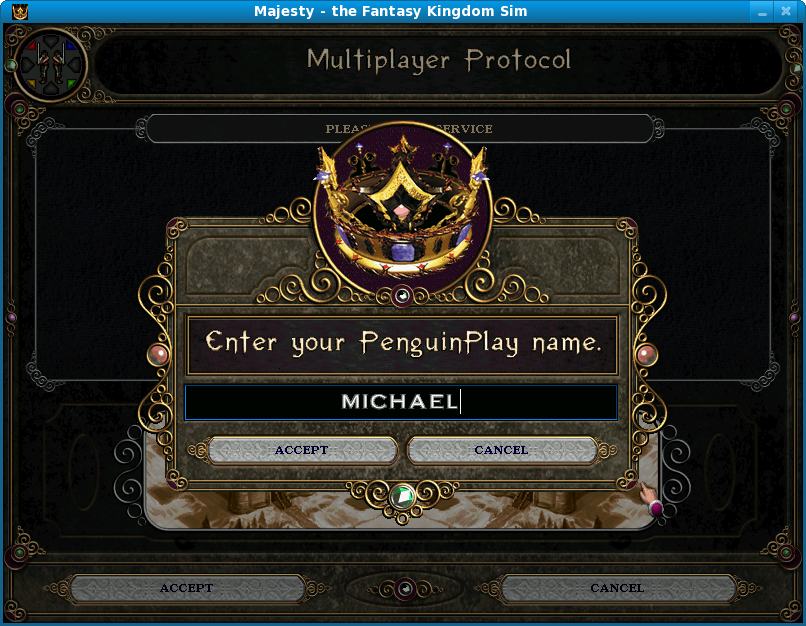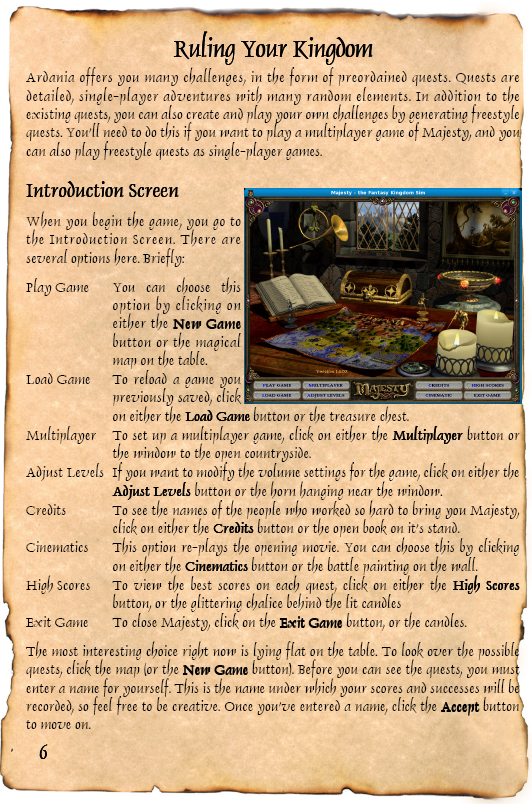At that point, fresh from our completion of Majesty, we were convinced world domination was just around the corner and we would all have our ferraris quite soon. We had a number of copies of Majesty printed (no, I’m not saying how many), and expected to have to get a reprint within 2 months, judging by the number of applications for the beta test, and the enthusiasm shown by people.
Over the next few months, reality, and a certain level of depression set in. We didn’t need to reprint Majesty. In fact in the first 3 months we didn’t even sell a quarter of the copies we had produced, and after the first few months, sales begin to slow down, so it didn’t look likely that we would suddenly see a huge rush of orders. The optimism pretty much evaporated.
So, realising it wouldn’t all be parties and glamour and free money by the bucketload, we settled down to some real work. We had more projects going on, with NingPo, Soul Ride and HDB, and we had new ideas. One of the new ideas that we went with was to open a physical shop.
Not a lot of people know we did that. We opened a shop in Nottingham, that was selling games. I admit we didn’t just sell Linux games, we sold all kinds of games, but the idea was to get a bit of local publicity for Linux games, while raising money using sales of other games, to fund the development of Linux games. It also didn’t feel horrible to see a shop where Linux games were on the same shelves as Windows games.
To be honest it didn’t do that great. The shop was small, and the people we rented the premises from made vastly inflated claims of how busy the mall we rented in was. Oh they didn’t lie, but they neglected to mention that the figures for mall visitors also included people walking in one side and straight out of the other side, as it was the only direct route from the city centre to the train station… However we sold a few Linux games, and increased company turnover (which always looks good on the books). In the end though, it was fairly obvious it wasn’t going to be the cash cow we had hoped for, in fact it was more a cash sink. So we closed it down after a few months.
Shortly after, I had been invited to talk at LinuxWorld Expo in San Francisco, and on my return to the UK, found we had had a disaster. Overnight on the day I returned, our stock room (also our server room) flooded. Our premesis is on a hill, and a severe rainstorm caused a building uphill from ours to flood, and the flooding cascaded downhill until reaching our stockroom, which seemed to be waterproof on the downhill side and not on the uphill side. End result was that the water pooled there, causing thousands of pounds of damage, and days of downtime. 6 inches of water took several days and a quite elaborate pumping system to remove, and obviously while half of the electrical system was underwater, we couldn’t fire up the servers!
Luckily, the damage wasn’t catastrophic. while hundreds of games had been destroyed, and computers had been submerged, no game was completely wiped out of stock, so we had no mad rush to reprint, and no orders were delayed. Backups ensured no data had been lost, but it was a bit of a scare! We spent a good few days raising everything in the room up by 6 inches, so that if it ever happened again we wouldn’t have a big problem, and we even installed a pumping system just in case!
Following one disaster, it is only appropriate that we mention another company disaster at this point. Disciples, a great game, but unfortunately LGP’s DNF. It was around this point that Disciples caused the first of many resignations from LGP. Mike Phillips left the company after one too many late nights trying to beat the game into submission. It isn’t that there is anything wrong with Disciples, it is simply that you need a developer with just the right development style to be able to port it, and they have proven hard to find over the years. And so over those years, Disciples has been part-ported several times, leading to belief it will never be released. I can say for sure it will be released, I just cannot, still to this day, say for sure when!
Despite the downsides, the flooding, the game that refused to be ported, and the staff that left, we had successes. Postal 2 became the fastest selling game in its first month, and when we looked back at the accounts we found that we had, in many ways done it right. The company had proven itself sustainable. Where Loki had come in in a blaze of glory and burned out just as quickly, we had been around for as long as Loki, and we were still here. We were not as high profile, the games we ported were not the ones you see advertised on TV, but they were all undoubtedly as good as the games produced by Loki. Just because a game is high profile doesn’t make it good, and just because a game is less well known doesn’t make it bad.
So, we were stable, we were ready for the future, and we now had to make some decisions. How could we grow. What could we do to drag Linux gaming into the mainstream. And how could we do it without the blaze of glory ending…
]]>


